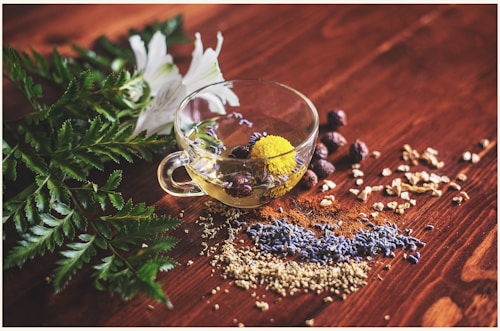Stress and anxiety are common issues in today’s fast-paced world, but many natural remedies can help alleviate these conditions. From mindfulness practices to dietary changes, here are several effective strategies to reduce stress and anxiety naturally.

Mindfulness and Relaxation Techniques
Breath Focus
Breath focus is a simple yet powerful technique that involves taking long, slow, deep breaths. This method helps disengage the mind from distracting thoughts and brings a state of calm. Regular practice can help manage stress and anxiety effectively. This technique is particularly beneficial for those who find themselves frequently overwhelmed by stress (Harvard Health).
Body Scan Meditation
Body scan meditation involves lying down or sitting comfortably and focusing attention on different parts of the body. This method helps identify areas of tension and promotes relaxation. By combining breath focus with progressive muscle relaxation, body scan meditation enhances the mind-body connection and reduces physical stress (Harvard Health).
Guided Imagery
Guided imagery involves visualizing soothing scenes or experiences to promote relaxation. This technique can be practiced using apps or online recordings of calming scenes. Guided imagery helps create a mental escape from stressors and reinforces a positive self-image (Harvard Health).
Yoga and Tai Chi
Practices like yoga and tai chi combine rhythmic breathing with physical postures or movements. These activities not only improve physical health but also provide a mental focus that helps distract from stress and anxiety. Regular practice can enhance flexibility, balance, and overall well-being (Harvard Health) (Taking Charge of Your Wellbeing).
Dietary and Nutritional Supplements
Omega-3 Fatty Acids
Omega-3 fatty acids, found in fish oil and certain plant oils, have been shown to reduce symptoms of anxiety and depression. They help regulate neurotransmitters and reduce inflammation in the brain, which can alleviate mood disorders (Taking Charge of Your Wellbeing).
B Vitamins
B vitamins, particularly B6 and B12, play a crucial role in the production of neurotransmitters that regulate mood. Deficiencies in these vitamins are linked to increased anxiety and depression. Supplementing with a B complex can support mental health, especially in individuals at risk of deficiencies (Taking Charge of Your Wellbeing).
Magnesium
Magnesium is known for its relaxing properties. It helps reduce muscle tension and anxiety while promoting better sleep. Magnesium supplements, such as magnesium glycinate, can be particularly effective in managing stress. However, it is essential to consult a healthcare provider before starting any supplement regimen (Taking Charge of Your Wellbeing).
Herbal Remedies
St. John’s Wort
St. John’s Wort is a popular herbal remedy for mild to moderate depression. It impacts several neurochemical pathways in the brain and has been shown to be as effective as some conventional antidepressants. However, it should not be used in combination with SSRIs or certain other medications without medical supervision due to potential interactions (Taking Charge of Your Wellbeing).
Valerian Root
Valerian root is commonly used as a natural tranquilizer and sleep aid. It can help reduce anxiety and improve sleep quality. Though research on its effectiveness is mixed, many individuals find it beneficial for managing stress-related insomnia (Taking Charge of Your Wellbeing).
Rhodiola
Rhodiola is an adaptogen, a natural substance that helps the body adapt to stress. It can enhance resilience against physical and emotional stressors, reduce fatigue, and improve mood. Rhodiola is particularly useful for those experiencing burnout and chronic stress (Taking Charge of Your Wellbeing).
Lifestyle Changes
Regular Exercise
Exercise is one of the most effective natural remedies for reducing stress and anxiety. Physical activity increases the production of endorphins, the body’s natural mood lifters. It also helps reduce muscle tension, improve sleep quality, and boost overall mental health. Activities like walking, running, swimming, and yoga can be particularly beneficial (Harvard Health).
Spending Time in Nature
Spending time outdoors, particularly in green spaces, can significantly reduce stress levels. Research shows that even a 20-minute nature break can lower stress hormone levels. Activities like hiking, gardening, or simply walking in a park can provide a mental reset and promote relaxation (Harvard Health) (Taking Charge of Your Wellbeing).
Social Support
Maintaining strong social connections is vital for mental health. Engaging with friends, family, or support groups can provide emotional support and reduce feelings of isolation. Building a robust support network helps manage stress more effectively and provides a sense of belonging and security (Taking Charge of Your Wellbeing).
Incorporating these natural remedies into your daily routine can help manage stress and anxiety effectively. While these strategies can be highly beneficial, it is essential to consult with a healthcare provider before starting any new treatment, especially if you are currently taking medication or have underlying health conditions.
Download StressBuddy
for Less Stress, Buddy
StressBuddy is free
